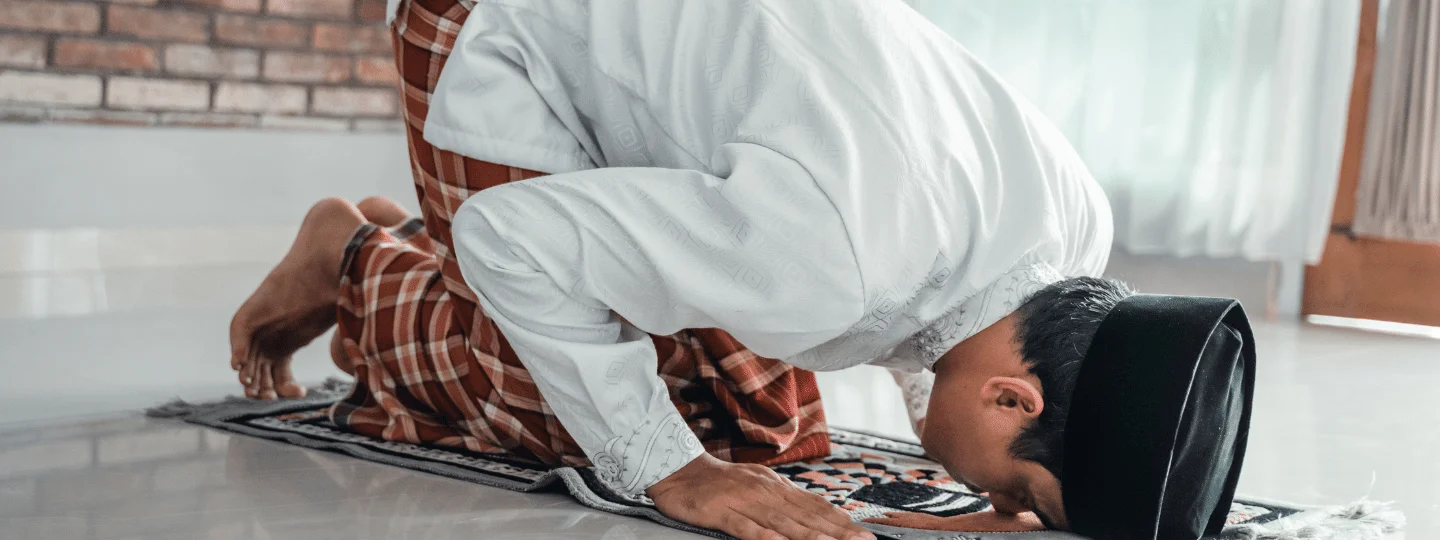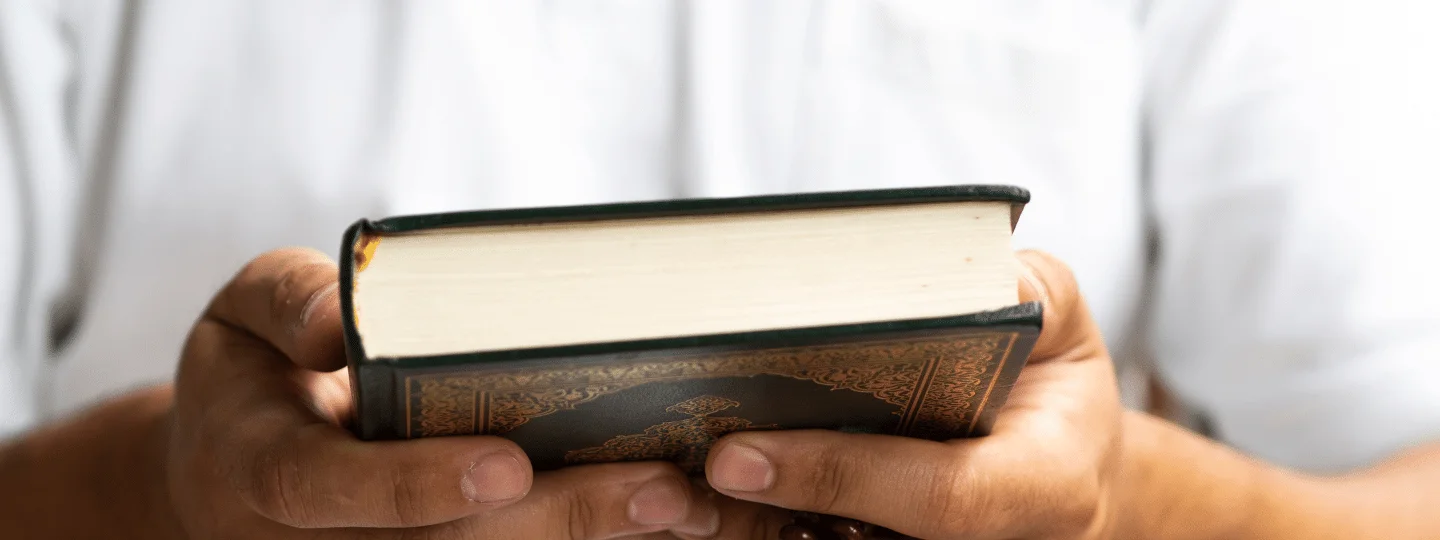Can the Imam do the Jumu’ah Khutbah in English?
بِسْمِ اللَّهِ الرَّحْمَنِ الرَّحِيمِ
In the Name of Allah Most Merciful Most Kind
Short Answer
Yes, the Imam can do the Jumu’ah Khutbah in English according to Imam Abu Hanifah. Whereas other Imams of the Hanafi Madhab said it is not allowed. Therefore, it is more cautious to deliver all or part of it in Arabic.
Explanation
يَاأَيُّهَا الَّذِينَ آمَنُوا إِذَا نُودِيَ لِلصَّلَاةِ مِنْ يَوْمِ الْجُمُعَةِ فَاسْعَوْا إِلَى ذِكْرِ اللَّهِ
O you who have believed, when the call to prayer is made on the day of Jumu’ah, then hasten to the remembrance of Allah. (Surah al-Jumu’ah, 9).
In the Quranic verse above, Allah (Most High) commands the believers to hurry to the Dhikr of Allah when the call to Friday (Jumu’ah) prayer is made. Many Hanafis have said the mention of Dhikr proves that the minimum Khutbah for Jumu’ah is any Dhikr. This can also be used as an argument to say Khutbah in English or any other language is fine. Since Dhikr can be fulfilled in non-Arabic too.
Difference of opinion
There is a difference of opinion between Imam Abu Hanifah and his students on the issue of delivering the Jumu’ah Khutbah in English. According to the Imam it is permitted and valid. But his students, Imams Abu Yusuf and Muhammad al-Shaybani, disagreed saying it must be in Arabic unless one is unable to deliver it in Arabic.
This difference between the Imam and his students was mentioned in the celebrated Hanafi Fiqh manual, al-Hidayah. And it was confirmed in the commentaries. However, they did not seem to make Tarjeeh. Meaning they did not explicitly mention which opinion is stronger in the Madhab.
وَالْخُطْبَةُ وَالتَّشَهُّدُ عَلَى هَذَا الِاخْتِلَافِ. (الهداية)
The Khutbah (sermon) and the Tashahud (testimony) are based on this difference. (Imam al-Marghinani 593H, al-Hidayah)
أَيْ تَجُوزُ قِرَاءَتُهُمَا بِالْفَارِسِيَّةِ عِنْدَ أَبِي حَنِيفَةَ خِلَافًا لَهُمَا. (العناية شرح الهداية)
Meaning, it is permissible to recite them in Persian according to Abu Hanifa, contrary to their opinion. (Imam al-Babarti 786H, al-Inayah Sharh al-Hidayah).
(والخطبة) ش: يوم الجمعة م: (والتشهد) ش: أي قراءة التحيات في القعدات م: (على هذا الاختلاف) ش: يعني يجوز عند أبي حنيفة خلافا لهما. (البناية شرح الهداية)
And the sermon. On Friday. And the Tashahud. That is, reciting the Atahiyaat in the sittings. Are upon this difference. Meaning, it is permissible according to Abu Hanifah, contrary to them both. (Imam Badr al-Deen al-Ayni 855H, al-Binayah Sharh al-Hidayah)
(قَوْلُهُ عَلَى هَذَا الْخِلَافِ) فَعِنْدَهُ يَجُوزُ بِالْفَارِسِيَّةِ وَعِنْدَهُمَا لَا إلَّا بِالْعَرَبِيَّةِ. (فتح القدير)
His statement: Upon this disagreement. According to him, it is permissible in Persian, and according to them both, it is only permissible in Arabic. (Imam Kamal al-Deen Ibn al-Humam 861H, Fath al-Qadeer).
Tarjeeh
Most scholars who addressed the issue of delivering the Jumu’ah sermon in other than Arabic did not explicitly make Tarjeeh. Meaning they did not clarify which opinion is stronger. However, Imam Shurunbulali does seem to make Tarjeeh in his renowned work, Maraaqi al-Falah. He seems to incline towards the opinion of Imam Abu Hanifah. This would permit Khutbah in English.
“و” الرابع “الخطبة” ولو بالفارسية من قادر على العربية. (مراقي الفلاح شرح متن نور الإيضاح)
The fourth is the sermon, even if done in Persian, by someone able to do it in Arabic. (Imam al-Shurunbulali 1069H, Maraaqi al-Falah Sharh Nurul Idah).
Imam Ibn Abideen does not explicitly mention his view of Tarjeeh. However, he presents Imam al-Haskafi’s view as giving preference to the position of Imam Abu Hanifah.
لَمْ يُقَيِّدْ الْخُطْبَةَ بِكَوْنِهَا بِالْعَرَبِيَّةِ اكْتِفَاءً بِمَا قَدَّمَهُ فِي بَابِ صِفَةِ الصَّلَاةِ مِنْ أَنَّهَا غَيْرُ شَرْطٍ وَلَوْ مَعَ الْقُدْرَةِ عَلَى الْعَرَبِيَّةِ عِنْدَهُ خِلَافًا لَهُمَا حَيْثُ شَرَطَاهَا إلَّا عِنْدَ الْعَجْزِ كَالْخِلَافِ فِي الشُّرُوعِ فِي الصَّلَاةِ. (رد المحتار على الدر المختار)
He did not restrict the sermon to being in Arabic, as he was satisfied with what he had presented in the chapter on the description of prayer. That it is not a condition even if one is able to speak Arabic, in his view. This is contrary to theirs, as they stipulated it. Except in the case of inability, just as there is a difference of opinion regarding the commencement of prayer. (Imam Ibn Abideen 1252H, Radd al-Muhtaar).
Not limited to the Khutbah
In the Nass (text) below, Imam Ali al-Qari explains that this discussion regarding recital in other than Arabic is not restricted to the Khutbah. Rather it applies to many other forms of Dhikr too.
وقال أبو يوسف ومحمد: لا يكون شارعاً بغير العربية إذا كان يُحْسِنُ العربية، لأن اللغة العربية لها من المزية ما ليس لغيرها، وعلى هذا الخلاف الخُطْبَةُ والقنوت والتشهد. (فتح باب العناية بشرح النقاية)
Abu Yusuf and Muhammad said: A person does not start in a language other than Arabic, if he is proficient in Arabic. Since the Arabic language has distinction that others do not have. Upon this difference of opinion is the Khutbah (sermon), Qunoot, and the Tashahud. (Imam Ali al-Qari 1014H, Fath Bab al-Inayah).
Recite the minimum
The difference of opinion regarding delivering the Jumu’ah Khutbah in English or any other language does not have much of a practical impact. Since, delivering a portion in Arabic will fulfil the requirement for those requiring it to be delivered in Arabic. Therefore, one can recite most in English and a little in Arabic. Thus, it will be valid according to all Imams.
وروى بشر عن أبي يوسف: أنه إذا خطب بالفارسية وهو يحسن العربية لا يجزئه إلا أن يكون ذكر الله في ذلك العربية في حرف أو أكثر من قبل أنه يجزىء في الخطبة ذكر الله، وما زاد فهو فضل. (المحيط البرهاني في الفقه النعماني)
Bishr narrated from Abu Yusuf: If a person delivers a sermon in Persian whilst he is fluent in Arabic, it is not valid. Unless he mentioned Allah in that Arabic before it, in a word or more. Since mentioning Allah is sufficient in the sermon, and anything more is virtuous. (Imam Burhan al-Deen al-Bukhari 616H, al-Muhit al-Burhani).
Respecting differences
As we see from the above discussion there is clearly a valid difference of opinion regarding delivering the Jumu’ah Khutbah in English. Such differences must be respected. It is a feature of Sunni Islam to respect valid differences in opinion. Rejected such diversity of opinion is a feature of sects, cults and recently formed groups.
Therefore, no traditional Sunni Muslims should fundamentally oppose either of the two opinions regarding delivering the Friday sermon (Khutbah) in other than Arabic. If a Masjid or institution opts to deliver in Arabic then that is fine and cautious. And if another goes with a local language then that is fine too.
Conclusion
Imam Abu Hanifah permitted the Jumu’ah sermon to be in other than Arabic. Thus, he would permit Khutbah in English. However, his students (the Sahibayn) required it to be carried out in Arabic. Most scholars mentioned the difference and made no explicit Tarjeeh. But Imam al-Shurunbulali is an exception to this. As he preferred Imam Abu Hanifahs opinion.
Therefore, it is acceptable for Masjids or institutions to follow Imam Abu Hanifahs position. I would advise them to have some Arabic in the Khutbah so that they have covered the minimum requirement according to the other opinion too. This would be cautious and would be helpful to those who insist on following the other opinion.
And Allah Most High Knows Best.
–Answered by Shaykh Noorud-deen Rashid (07/10/25)
Quran
Hadith
Islamic Text






